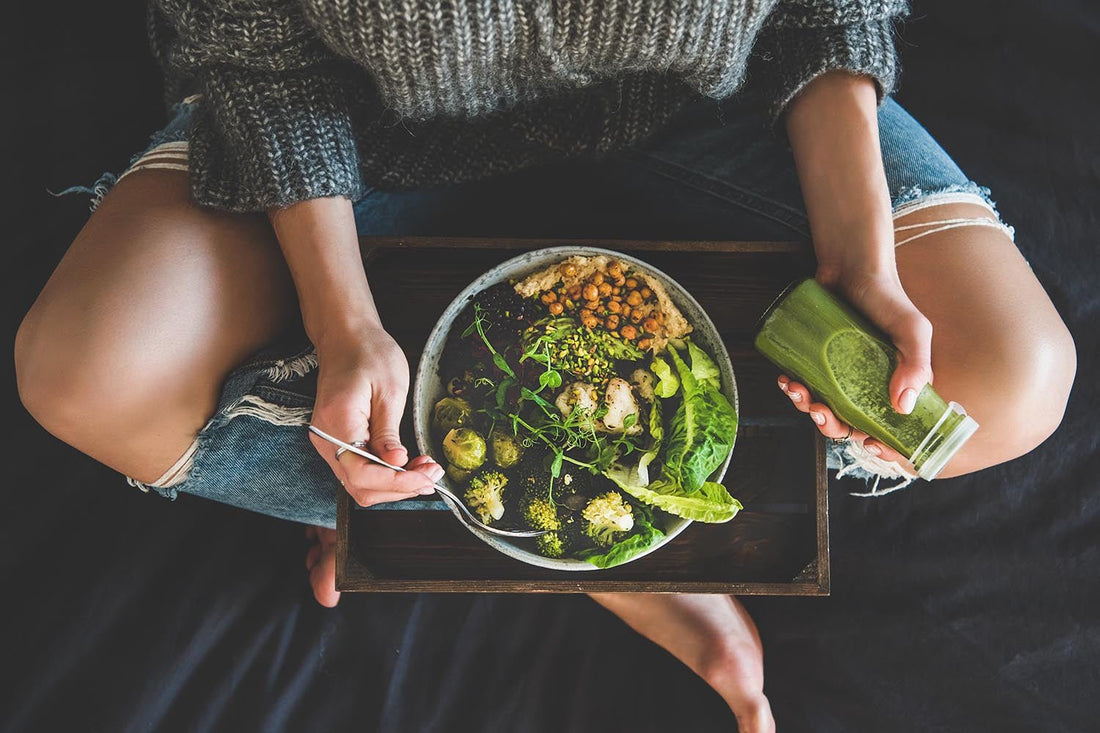
Are vegan diets really that healthy?
Share
Many people around the world are embracing vegan diets. There are over 75 million people in Europe and over 1.6 million in the USA now following a plant-based diet. But why exactly? And what are the pros and cons?
Traditionally, preventing the exploitation of animals and protecting the environment were the main reasons for becoming vegan. However more and more people are now turning towards plant-based diets for the health benefits.
Better heart health
A 2019 study has shown that consuming less meat coupled with a higher intake of plant-based foods, was linked to a reduced risk of heart disease in adults.
The belief is, animal fats contain a lot of saturated fats which are linked to high cholesterol levels. And high cholesterol levels have been connected to an increased risk of heart disease.
Therefore avoiding these particular fats reduces the risk. However, be aware of vegan products that are high in palm oil or coconut products as these can also be high in saturated fats.
Helps weight loss
Plant-based diets are often recommended for weight loss as meat tends to have more calories than vegetables. Vegetables and pulses also typically have a higher fibre content, so will keep you feeling full for longer. This makes snacking a lot less likely and therefore increases your chance of losing weight.
However, as on all diets, healthy choices are needed. Eating vegan junk food and dairy substitutes can be very fattening. It's also important to have a diet that you can stick to in the long term so find a balance you can sustain.
Can help reduce blood sugar levels
Going vegan may also have benefits for type 2 diabetes and declining kidney function. One study showed that vegans had up to a 50% lower risk of developing type 3 diabetes.
This is thought to be because plant-based diets tend to be low in saturated fat, which impairs glucose uptake from the bloodstream. And plant-based diets are also higher in fibre, antioxidants and magnesium, all of which are known to improve insulin sensitivity.
However as with all diets, planning is essential. Again, snacking on high sugar vegan snacks or not managing your protein intake correctly will not help blood sugar levels.
Although there are numerous health and environmental benefits a vegan diet, if you want to adopt a vegan diet planning is key:
- Include high protein foods: this will help you feel fuller for longer periods of time -
- Edamame, quinoa, chickpeas, tofu.
- Integrate Vitamin B12 in your new diet, it's essential for our body to function and is often lacking in a vegan diet -
- Britt's Superfoods Blended Greens Superfood juice.
- Include calcium in your diet -
- Orange juice, Kale, dried figs.
- Ensure your diet is rich in iron -
- Oatmeal, Spinach, Raisins, Britt's Superfoods Blended Greens.
So, should you become vegan?
It's a tough question, and one only you can answer. There are health benefits to all healthy diets and it's important to choose one that fits your lifestyle and wellness goals.
At Britt's Superfoods, we've put together a range of superfood juices that help support both vegetarian and vegan diets. Our Blended Green Juice is particularly good for a vegan diet as it contains high levels of Vitamin B12 and Iron.

